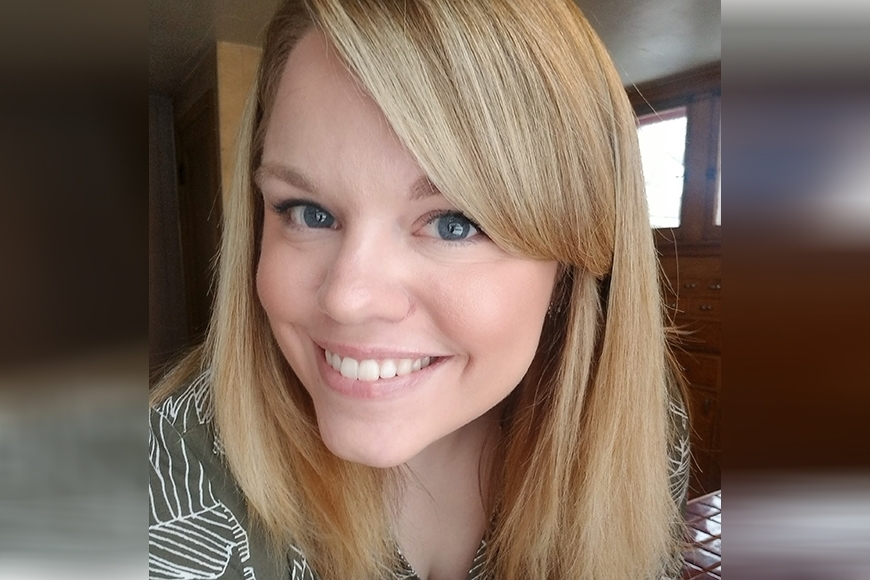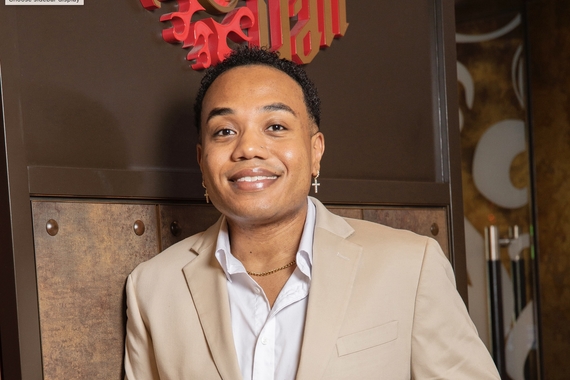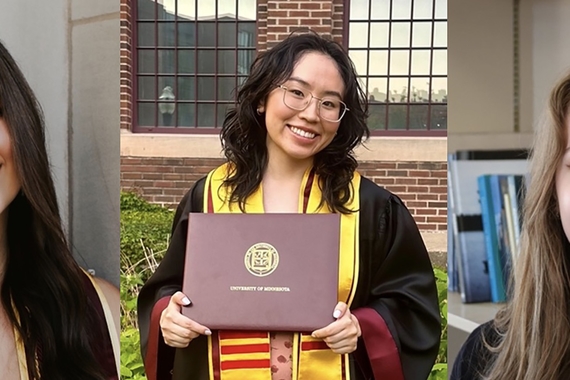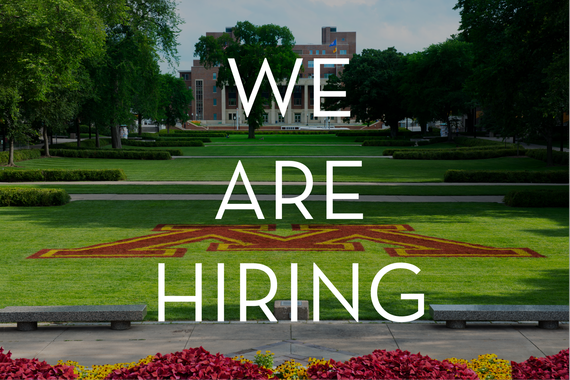Featured RSTC PhD Student: Katlynne Davis
Where are you from?
I’m originally from Racine, WI, a smaller city just south of Milwaukee -- our most important claim to fame is that we make and eat a lot of Kringle (flaky, frosted delicious filled pastry).
Where did you previously attend school? What was your degree in?
I completed my undergraduate degrees in English and history at the University of Wisconsin-Parkside (Kenosha, WI), and decided to tack on a professional writing certificate too. I got so into technical communication that I decided to continue on with a master’s degree at Iowa State University, where I studied customer support accounts on Twitter as technical communication.
Why did you choose Writing Studies at the University of Minnesota?
After getting to meet everyone in the department on visit day, I was pretty committed to the rhetoric and scientific & technical communication program in Writing Studies. The sense of community and connection here really impressed me, and it’s honestly sustained me throughout my time in the program. Everyone has been so supportive with teaching, research, and personal life stuff!
What is your research area?
Speaking more broadly, I study social media work as a form of technical and professional communication. As is the case with many texts we encounter in digital spaces, we might not always see the work and decision-making that professionals engage in behind the scenes. In my dissertation, I ask about that work by connecting interests in social media with my interests in mental health and mental health communication. My project examines how professionals within a mental health nonprofit perform certain types of digital labor as they create social media content advocating for those with mental illnesses.
What do you find most interesting about your research area?
What’s most interesting to me about my research is learning more about the diverse and complex work that social media professionals are doing. Social media work can sometimes be seen as unprofessional or not serious labor, but the participants in my dissertation are pretty experienced communication designers who have a lot of different goals to balance in their work. I also enjoy learning more about how these professionals make communication choices surrounding mental health advocacy. Providing support for those who struggle with mental illness or disability is something I’m personally passionate about. Social media can be important sites for fighting against stigma, and studying communication practices can help in identifying how professionals craft supportive messages.
Would you tell us about a project or course that was particularly meaningful to your professional development?
There have been so many awesome courses and projects I’ve been a part of, so it’s definitely hard to choose! One that really sticks out to me is my involvement with the Building Digital Literacy Collaborative, which is an international group of scholars studying how students develop digital literacies. A primary focus for the collaborative has been to explore how the digital archive, The Fabric of Digital Life, is a rich site for fostering student digital literacy. Our work has led to so many projects, including a recent publication in The Journal of Interactive Technology and Pedagogy where we share assignments we’ve created that focus on The Fabric of Digital Life. For me, working with this amazing group has been influential in learning the value and power that collaborative work has.
What class are you teaching and what is your favorite thing about teaching it?
Currently, I’m teaching WRIT 3577W: Rhetoric, Technology, and the Internet, which is one of my favorite courses to teach because we get to dig into so many timely issues surrounding technology use and discourse. For example, this semester we’ve been analyzing how oppression is embedded within the design of technologies and within our own narratives about technology. I can see students really working through big, complex questions as they complete assignments where they reflect on their own experiences with technologies or where they map out the technological and social arrangements within certain digital communities. Honestly, I end up learning so much from them when I leave class!
What research/teaching projects are you planning for the future?
In the future, I want to continue my research focus on social media and mental health communication by more closely analyzing advocacy surrounding mental illness support. My dissertation begins this work, but in the future, I want to explicitly examine advocacy messaging on social media as a unique form of communication. Additionally, I hope to have the opportunity to design and teach a course on social media or digital media writing!
What are your interests / hobbies outside of academia?
In dissertation writing times, my hobbies are pretty limited to spending too much time on Netflix or TikTok -- I’ve gotta keep morale high. But during grad school, I’ve developed a pretty solid cooking hobby. As someone who’s previous cooking experience consisted mostly of preparing boxed foods, I’ve had a lot to learn. I also love shopping for antiques or vintage stuff (the Twin Cities have so many great vintage places to check out!), watching period pieces or reading historical fiction, and holding conversations with my two cats.
What advice would you give to someone considering pursuing their MA or PhD with the Department of Writing Studies?
My advice would be to seek out community in the department, and don’t be afraid to connect with fellow graduate students! Those relationships are what keep you moving when things feel tough, as I can say from experience. Not only that, but you learn so much through conversations with fellow students -- my colleagues have had such a huge influence on how I approach teaching and research. Similarly, reach out to faculty for help or just to chat ideas. Those relationships are super important as well, and faculty are there to support you! And in addition to building up a professional support system, develop a system for self-care! Take time to find hobbies outside of coursework or teaching. Make sure you get rest and actually drink water. Go outside every once in awhile and celebrate ALL successes, including everything from writing 3 sentences to making it through a rough teaching day to publishing your research. You got this!



